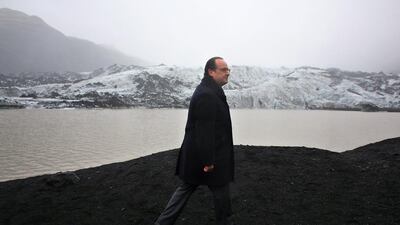Governments across the world are making their final preparations for the UN climate change summit in Paris next month. The event is one of the most ambitious environmental conferences for a generation, and while a deal is likely, it remains unclear how comprehensive it will be.
With all countries involved in setting a framework for reducing greenhouse gas emissions, parliamentarians, industry leaders and academics met in advance of the summit in Paris on September 24.
The scientific consensus reflected in Intergovernmental Panel on Climate Change reports is that global average temperatures will rise by 2°C by 2050. And then continue rising if economic growth based on current technology and agriculture is not reversed.
Last month’s meeting expressed a consensus that technological transformation could enable standards of living to be maintained in the industrialised world, while at the same time reducing carbon emissions substantially enough that developing countries will be able to grow their economies and their emissions up to global per capita levels.
But most countries are equally concerned that environmental policies must also deal with the impacts of severe natural hazards caused by global environmental changes, and special regional effects such as burning forests, the melting of polar ice and desertification. As the UN sustainability goals have emphasised, societies need to become significantly more resilient.
This growing confidence about the potential for future technological and green energy transformations in the developed world is underpinned by several factors. Firstly, there is greater belief that in some countries, reliable and economic technology will be available to provide non-fossil energy for electricity and even for transportation.
The past two decades have provided clear evidence about the reliability of renewable energy systems.
However, winds can be weak and variable, and clouds can obscure solar radiation, so backup energy supplies are used from hydroelectric, or geothermal, or from nuclear fission. Globally, the proportion of non-carbon electrical energy (excluding hydropower) provided by nuclear power is now about 50 per cent.
The shift towards low carbon energy for transport, which uses about 30 per cent of generated energy, is also contentious. Some countries have been introducing fuels that partially reduce carbon emissions, although these fuels, such as diesel, increase air pollution, and are at the centre of the recent scandal surrounding Volkswagen.
Alternatives to coal and oil include use of carbon-neutral fuel derived from crops or solar captured bio-plant. Although introducing hydrogen as a transportable power source produces zero carbon emission, it requires more substantial technology changes both in the vehicle and in the storage and delivery of fuel, which raises concern about explosion risks.
One immediate measure for bringing down carbon emissions is to reduce the speed of road vehicles, shipping and aviation. These cuts are also being advocated (for instance, on motorway signs in some countries) because of their significant health benefits, which may help overcome political and popular resistance to their introduction.
Even more fundamental social transformations towards a green economy are emerging too, such as substituting travel with remote communication by phone, video and internet, and substituting smart local production for transported goods, with 3D printing of products and innovative local food production.
Some 30 to 40 per cent of energy supply in developed countries is accounted for by heating and other services in buildings, although the total amount per dwelling is increasing because of larger usage of water, ventilation and information technology.
However, as these uses become smarter, with intelligent design and control such as by utilising intermittent power, and by optimising designs of internal-external spaces, the total use of energy can be reduced substantially.
Progress in energy use and structure is now coming from remarkable materials technology with new nano-materials improving the insulation and structural properties of wooden beams and walls. And also liquid-gas microchannels used as heat pipes to enable heat to be transferred and stored in smart brick, as pioneered in plastic greenhouses in China.
Governments need to seize the opportunity at the Paris conference to frame their agreements for the long-term based on evidence of the growing effectiveness of low carbon policies and greener economies. As some governments already recognise, these developments also provide a springboard for innovative industry and agriculture, and sustainable developments in social and environmental planning.
However, policies should also be consistent with overall sustainability strategies for ensuring greater resilience of societies and infrastructure against the impacts of natural and artificial hazards.
These are only likely to worsen until human effects on the global environment are brought under much better control.
Lord Hunt is a visiting professor at Delft University of Technology and former director-general of the UK Met Office

